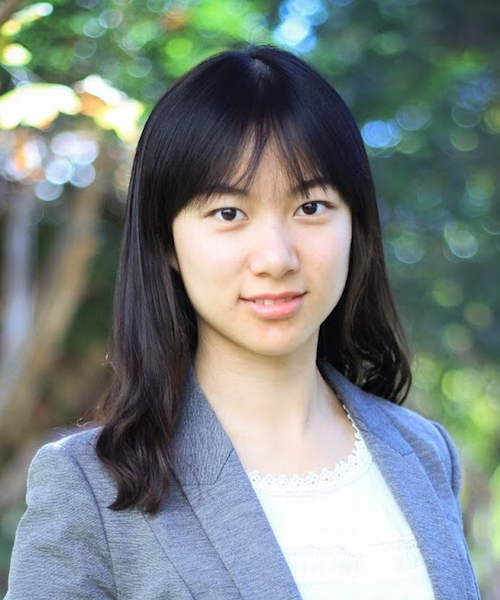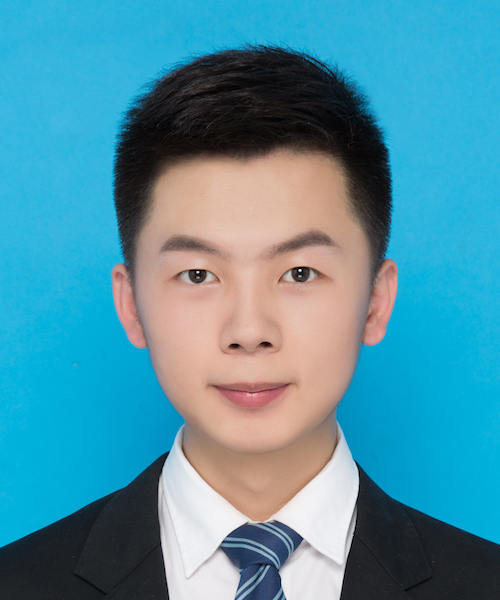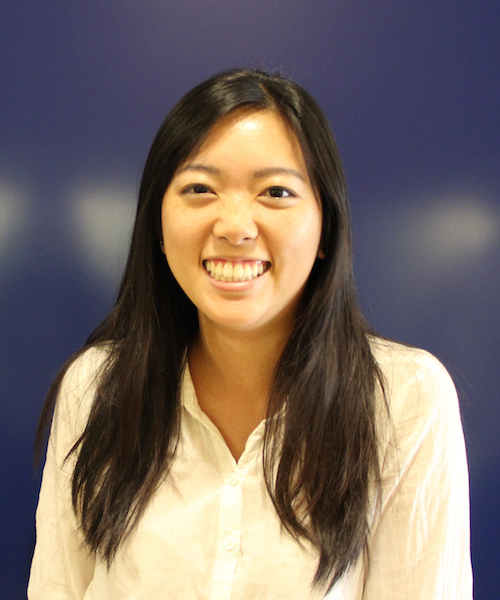
Paint this beautiful blueprint of the future together, shall we?
Ruolin Zhao | July 31, 2018
Responding To: Reflecting on the 2017-2018 U.S.-China Student Fellows Program
Yunxin Wang
About a year ago, I came to the Georgetown Initiative for U.S.-China Dialogue full of excitement and curiosity, wondering what kind of chemistry the 10 student fellows with such different backgrounds would generate, and what kind of journey Professor Wilder would lead us on. A year later, I am leaving the initiative with more diverse thinking, lifelong friendships, and the rooted faith that better understanding between the United States and China can be achieved. The year-long dialogue has, through various forms, encouraged us to clash our values, change our standpoints, and try to find a common ground between seemingly antithetical ideas by untangling our underlying assumptions and matching our commonalities, no matter how small they initially seem.
The trip to Washington last October, as the beginning of the fellows program, introduced me to U.S. viewpoints and American ways of thinking in the most direct means. I was surprised and grateful to receive candid responses to my questions from officials on the National Security Council and at the Department of State, scholars from the Brookings Institution, as well as faculty advisers from Georgetown University. Professor Wilder’s simulation on North Korea challenged our preconceptions by forcing us to change perspectives and put ourselves in others’ shoes. Thinking like an American was hard for me, and I’m sure that thinking in the position of the Chinese must also have been a brand new experience for my American counterparts. But such valuable experiences constituted a meaningful first step for us to cultivate a sense of empathy and really understand each other. Throughout the year, we shared news articles, texted our daily lives and wrote blogs on the North Korea nuclear issue, Belt and Road Initiative as well as the potential cooperation in the digital world, which really brought us together as associates and friends.
The group convened again in Beijing this May. We were cordially welcomed by the Ministry of Foreign Affairs, Madame Fu Ying from the National People’s Congress and the U.S. Embassy. The meetings provided us with valuable opportunities to approach great people behind the camera, and to be answered with honest opinions on the issues we cared about, such as technological transfer, trade conflicts and the two countries’ roles in the future global order. The experience was instructive and illuminating in that the conversations helped us understand the logic and principles that underlie the two sides’ different views toward the same issue, which disabused me of any subconscious intention of taking sides by showing the validity of both. We also received fresh and diverse views from Chinese academic scholars, a journalist from Bloomberg and the Carnegie-Tsinghua Center. Meeting with these great people and learning about how they have progressed and what they have achieved in Chinese society with their individual thoughts was truly both reassuring and inspiring for me.
Our discussions in Beijing focused on values. It was quite a self-reflective and informative process to seek out the commonalities between the Chinese and American value systems by first listing what we believed to be the core values of Chinese and American culture, respectively, on the two sides of the board, and then write down what both share in the middle. We also did the same thing for our grandparents’ generation to contrast their thinking with ours. The result was quite stunning. Our generation has, in many ways, outgrown most of the stereotypes and ideas that held back the relationship between the two countries and their people in the past. The young generation in China no longer harbors animosity towards so-called “western capitalism” under the drive of a victim psyche, just as some young Americans are no longer convinced that the United States is absolutely dominant in the international order with its perfect political system. We both advocate anti-terrorism, gender equality, environmental protection and the abundant other common goals we share. Our disagreements - indeed there were many - exist not because we found the other side’s logic invalid, or unimportant, but because we place priorities differently based on what we choose to be the most vital principle to guide our behavior. I feel the disagreements among the fellows are not unsolvable because they’re not generated from misinterpretation or any fundamentally dissident views, instead they are already based on a certain level of mutual understanding while both sides have the intent to find common ground. There is still a long long way to go in the future, but China is changing, the United States is changing, and our priorities do not remain unchanged.
Throughout the year, I have been so grateful to have received the incredible insights, amazing friendships and the greatest guidance from the Georgetown U.S.-China Initiative. I genuinely hope more and more talented young people will join this great platform and contribute their vision to this vibrant bilateral relationship, because there’s more we can do and much more responsibility we should shoulder, and the dialogue should always continue.
Yunxin Wang is a junior at Beijing Foreign Studies University majoring in English with a minor in economics.

Ruolin Zhao | July 31, 2018

Ulysses McGuinness | July 31, 2018

Haile Chen | July 26, 2018

Michael Mullaney | July 25, 2018

Cynthia Wang | July 24, 2018

Jessie Dalman | July 20, 2018

Yamillet Payano | July 19, 2018

Chenyu Wu | July 18, 2018

Hongjin Xu | July 16, 2018